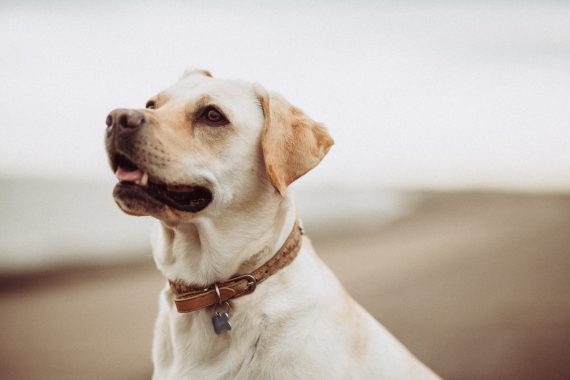5 Tips to Socialize Your Adopted Adult Dog

Did you recently introduce a new dog to your family as a result of coronavirus? Don’t be fooled by the adage that you can’t teach an old dog new tricks. While adult dogs might learn at a slower rate than puppies and younger dogs, they still have the ability to be taught new skills. The key to success is repetition and consistency as they adapt to new situations and environments. With each new experience, be sure to create a calm, loving environment with lots of positive reinforcement and you will have a happy, confident and well-balanced dog in no time.
Start socializing your adult dog with these tips:
TAKE YOUR DOG FOR FREQUENT WALKS
Daily walks are great opportunities to expose your dog to new sights, sounds, smells, humans and other animals. It gives you a chance to practice proper behavior with your dog since you’re likely to encounter more social situations during your walk.
If your dog barks or responds in a disruptive or undesirable manner, refrain from scolding or tugging on their leash as it will increase their excitement and create a negative experience for them. Instead, simply walk in another direction and remove them from the situation so they can calm down.
INTRODUCE THEM TO NEW PEOPLE
This can be done even while social distancing. Invite one or two family member or friends over and host them in an open space where your dog can feel comfortable, such as your backyard. Make sure your friends do not approach, crowd or overwhelm your dog. You want your dog to make the first move and approach your guests when they are ready. If your dog does not wander over to investigate, your guests can toss a treat from time to time to show your dog they come in peace. Keep the environment very positive and laid-back to keep your dog relaxed and help them associate new people with good experiences.
MONITOR YOUR ATTITUDE
It is important to keep in mind that dogs sense your emotions and if you seem stressed out or nervous about an experience, so will your furry friend, too. Through body language and tone, you should remain calm and confident. Don’t play into your dog’s fearful or nervous reactions. If you comfort them when they are frightened, you will teach them that there is a reason to be fearful. Your dog feeds off your reactions and attitude, so be calm, collected and act as though the situation is not a big deal.
TURN TO PROFESSIONALS
If your dog is not responding well to your methods, contact a professional trainer or consider taking them to a dog daycare setting like Dogtopia. Our certified Canine Coaches have experience with all breeds and temperaments and can expertly read a dog’s body language and help you determine if daycare would be helpful in socializing your adult dog. Find a location near you.











